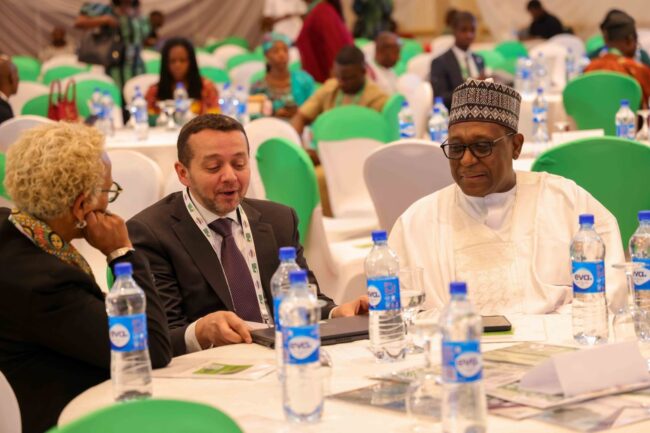The Federal Government has said improving health outcomes must begin with a strong emphasis on Primary Health Care(PHC), which serves as the foundation for resilience against climate-related and other health threats.
The Coordinating Minister of Health and Social Welfare, Prof Muhammed Ali Pate, said this in his address on Thursday, at the 10th anniversary of the Future of Health Conference in Abuja.
The 2024 conference theme ‘From Evidence to Action: Building Resilience at the Health Nexus’ was organised by Nigeria Health Watch
The conference unites stakeholders to address intersections between health, climate change, and sustainable development, seeking transformative solutions to strengthen health systems in Nigeria.
Speaking further, Pate said governments at the various levels are working to revamp Nigeria’s health workforce, and ensuring that they are available and prepared to detect and respond to emerging diseases.
He added that there is also an economic dimension to the government’s response, saying “We are looking for ways to create economic value while addressing climate challenges.
“Solarization of healthcare facilities, including primary health centers and teaching hospitals, is one such approach.
“This will ensure that our health infrastructure is better equipped to meet the energy demands brought on by climate change.
“Nigeria recently experienced one of the largest floods in our history. While we are not yet completely out of danger, the federal government, in collaboration with state governments, acted quickly to mitigate the effects of the disaster.
“We mobilised resources to prevent outbreaks, distributed cholera vaccines, and implemented interventions to protect public health.
“Preparedness and rapid response are critical to managing the new health realities shaped by climate change.
“Our ongoing efforts to prevent cholera outbreaks and respond to other infectious diseases are examples of the preparedness needed to face these challenges head-on,” he said
The Minister added that importance of constructive partnerships partnership and collaboration are central to overcoming these challenges.
He, however, cautioned that partnerships must be multi-stakeholder and constructive as each partner—government, private sector, civil society, and international organizations—brings different capabilities and resources, saying that “It is essential that we complement one another rather than duplicating efforts.”
Pate also warned that while Nigeria and other developing countries are bearing the brunt of climate change, it is essential to acknowledge that the country is not responsible for its root causes.
“Addressing the impacts of climate change is a matter of social justice. The people most affected—those displaced by flooding or suffering from malnutrition—are the same people who have not benefited from the industrial activities that have caused climate change.
“Despite this, they are left to deal with the consequences. If we are serious about addressing this issue, it will require significant resources now, not tokenistic efforts.
“The federal government, under the leadership of Mr. President, is doing everything possible to navigate these challenges and the difficult times Nigerians are facing.
“With steady hands at the helm, I am confident we will get through these challenges. However, our development partners must stay with us for the long term,” he said.
On democratizing the climate conversation, Pate reiterated that it is important that the conversation around climate change and health is not just among experts or global elites.
“We need to democratize the climate conversation so that people in our villages understand what is happening, where it is coming from, and what to expect.
“We must enhance public awareness of the realities of climate change, especially as we are likely to see more extreme weather patterns, new diseases, and increased migration. Engaging our citizens in this conversation is key to building resilience,” he added.
Meanwhile, the Managing Director of Nigeria Health Watch, Vivianne Ihekweazu, noted that the impacts of climate change are now felt in every corner of lives.
While citing instance, she said, “From the air we breathe, the food we eat, to the very systems designed to protect our health.
“The science is clear. Climate change is now a major determinant on our health. However, though are we still alarmed by climate shocks?
“This highlighted in a recent discussion at the World Health Summit 2024. We have entered an era where these shocks are more frequent, often disturbingly predictable.
“The question is no longer whether climate change will impact health but how much worse it will get, if we don’t act swiftly and decisively.
“We have focused on this theme today, as it is not just about understanding the evidence of these connections; it’s about acknowledging the research gaps, yet using existing evidence to take action.”
ALSO READ THESE TOP STORIES FROM NIGERIAN TRIBUNE
